Exploring Minimally Invasive Options for Slipped Disc Relief
- Endospine360
Back pain is a common condition that affects millions of people worldwide. Slipped disc is one of the major causes of backache. Soft cushion-like discs between the vertebrae in the spine can bulge, slip, or rupture. Slip disc affects as many as 20 of every 1,000 adults in India, says renowned endoscopic spinal surgeon Dr Prasad Patgaonkar .
Scientists and medical researchers are continuously exploring innovative approaches to provide more effective and minimally invasive treatment options for this debilitating condition.
Understanding Slipped Discs:
To understand the significance of betterment in slipped disc treatments, it's crucial to understand the condition itself. The spinal discs, located between each vertebra, act as a shock absorber and allow flexibility in the spine. According to Dr Prasad Patgaonkar, founder of Endospine360, over time, due to aging, injury, or incorrect posture, these discs can become weakened and herniate. When a disc slips out, the gel-like material inside leaks which generates pressure on nearby nerves, leading to pain.
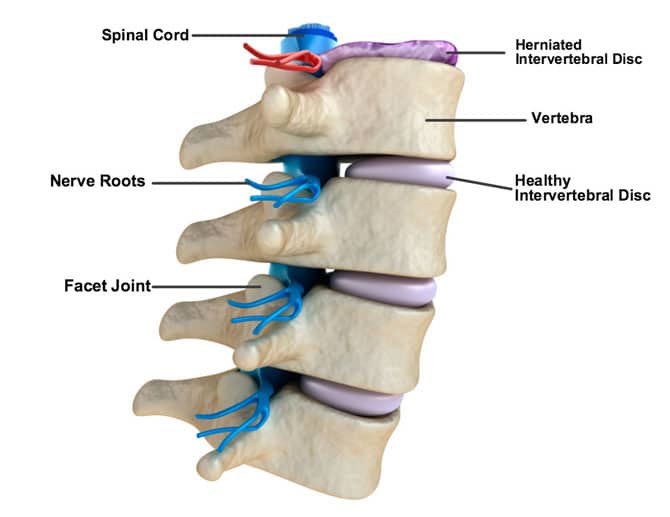
Aging alone is not the sole culprit in causing disc disease. Other factors such as excessive spinal stress from activities like heavy lifting, sports, and repetitive motions, prolonged periods of poor posture, genetic predisposition, and the presence of obesity contribute to the development of this condition.
What are Minimally Invasive Treatments?
In recent years, scientists and medical professionals have been focusing their efforts on developing minimally invasive treatments. Minimally invasive treatment refers to medical procedures or interventions that employ techniques designed to minimize tissue damage and disruption to the body, in contrast to conventional open surgery. It offers better outcomes and quicker recovery times for slipped disc patients.
The Road Ahead:
When non-surgical treatments have been ineffective and patients continue to experience difficulties after six to eight weeks of conservative care, surgical options such as discectomy, endoscopic microdiscectomy, or laser disc decompression may be considered.
If you are currently facing continuous and severe back pain that is not resolving on its own, it is important to seek help from an orthopedic spine specialist without any delay. Ignoring or delaying treatment could potentially result in further complications, including nerve damage or other adverse effects. By promptly reaching out to a specialist, you can receive a thorough evaluation and appropriate treatment to address your condition and prevent any potential long-term consequences. Remember, taking proactive steps towards seeking medical attention is crucial for effective management and the overall well-being of your spine health.
Search
Categories
Popular Tags
Recent Post
-
Consult the top spine surgeon for safe and effective spine treatment
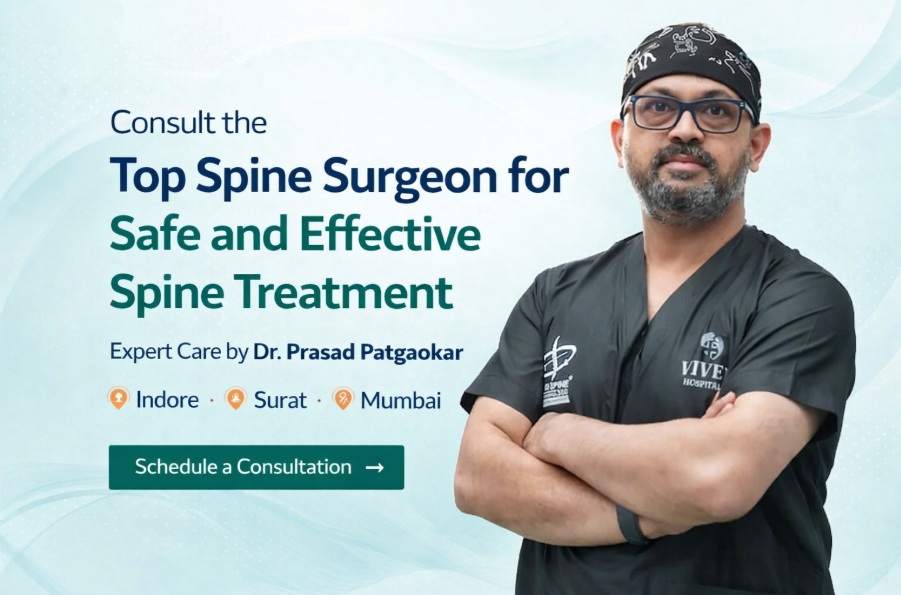
Spine problems such as chronic back pain, neck stiffness, slipped disc...
Read more -
Effective solutions for spine and back pain problems by the best spine doctor in surat
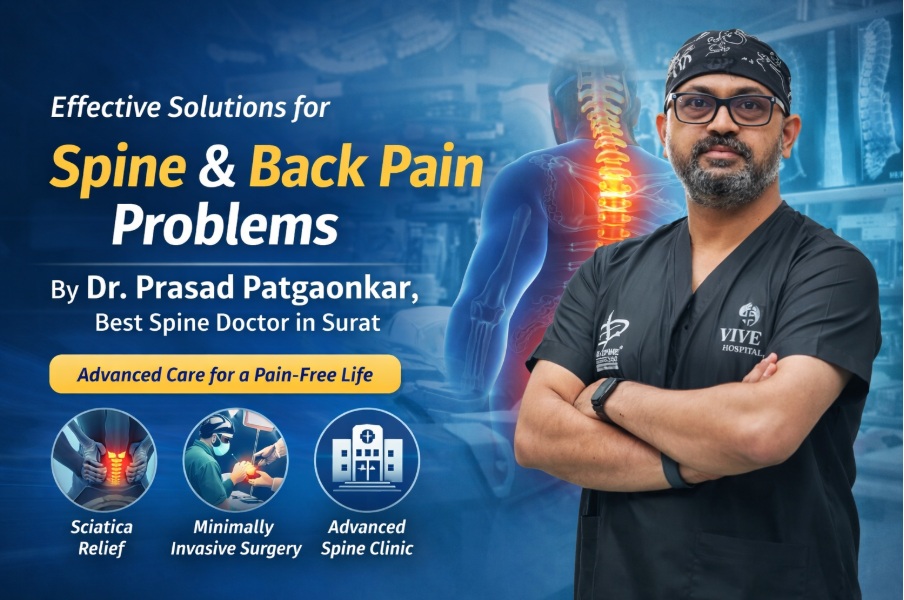
Back pain and spine-related disorders have become increasingly common ...
Read more -
Full endoscopic fellowship 2026
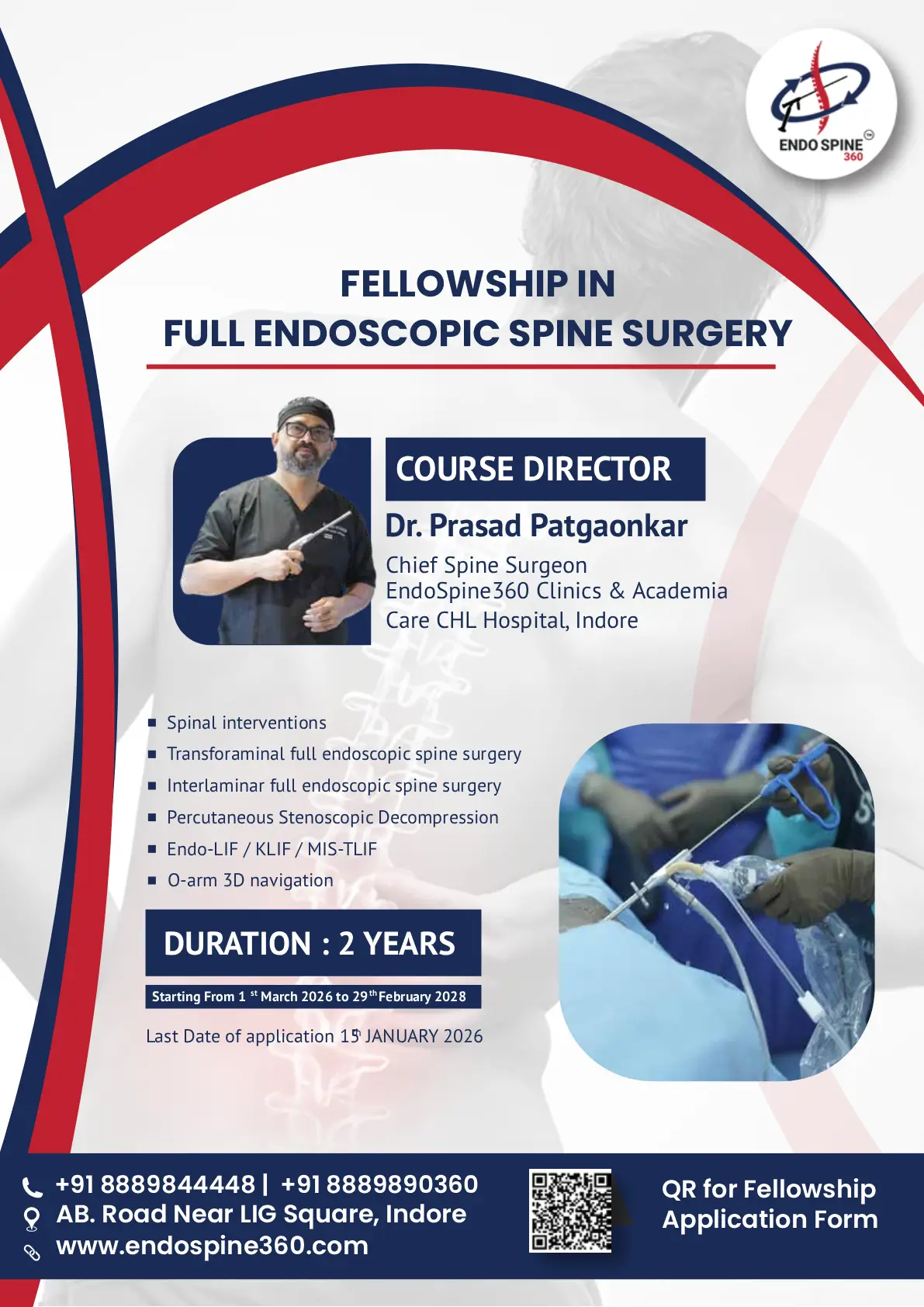
Fellowship in full endoscopic spine surgery under Dr. Prasad Patgaonka...
Read more -
From sciatica to disc problems: spinal diseases treated with endoscopic surgery in surat
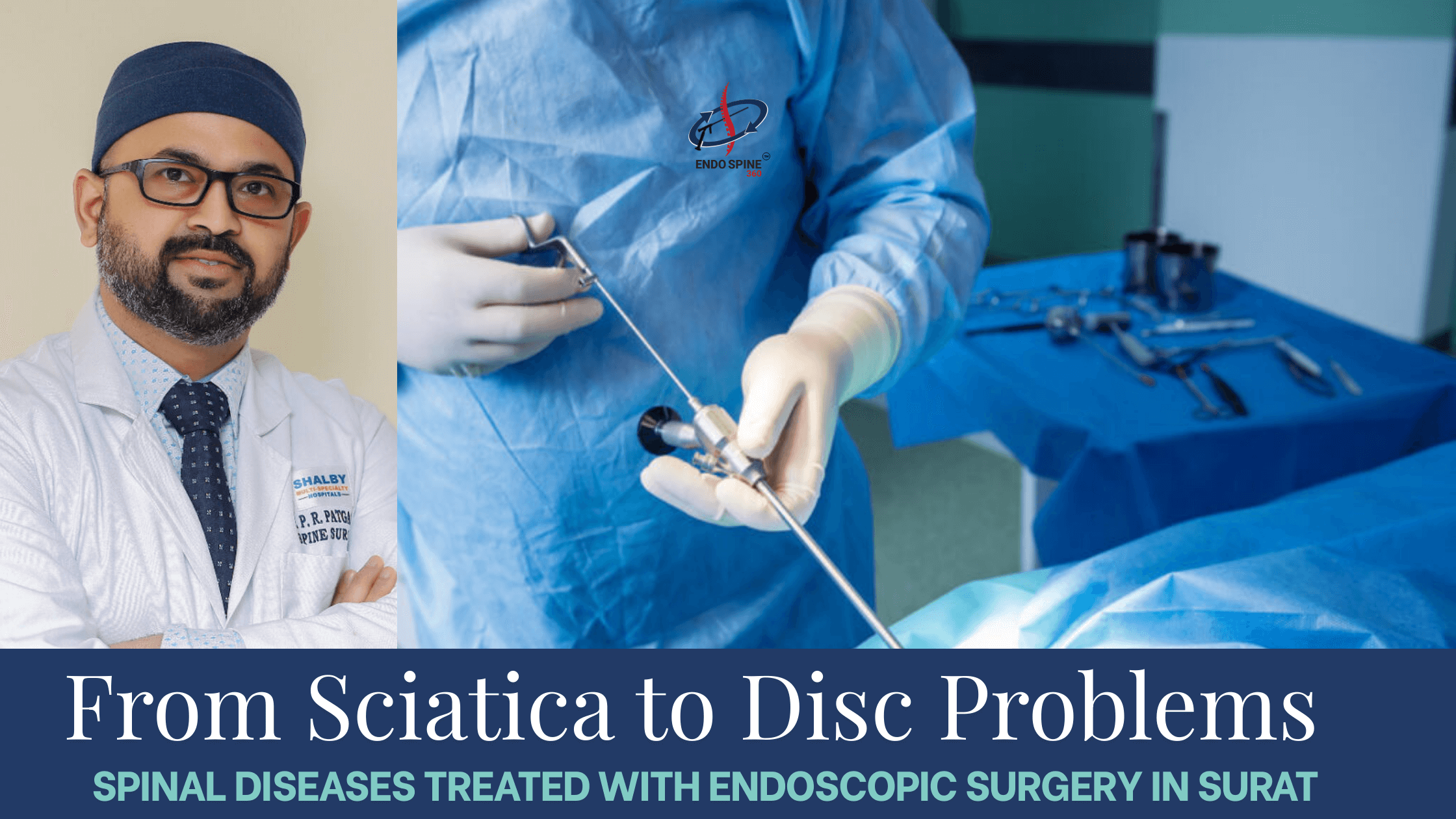
Spine pain can quietly affect every part of your life—from walking and...
Read more



